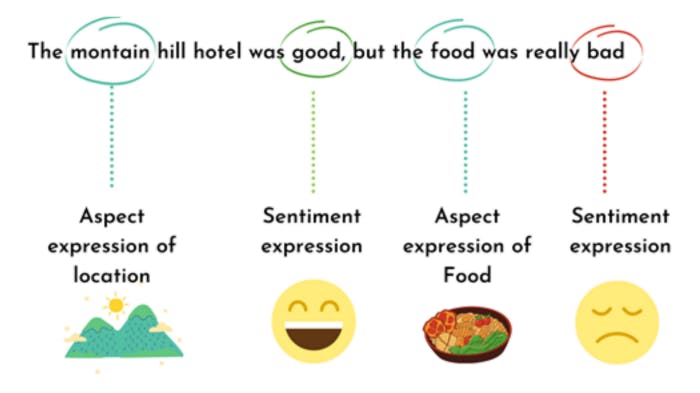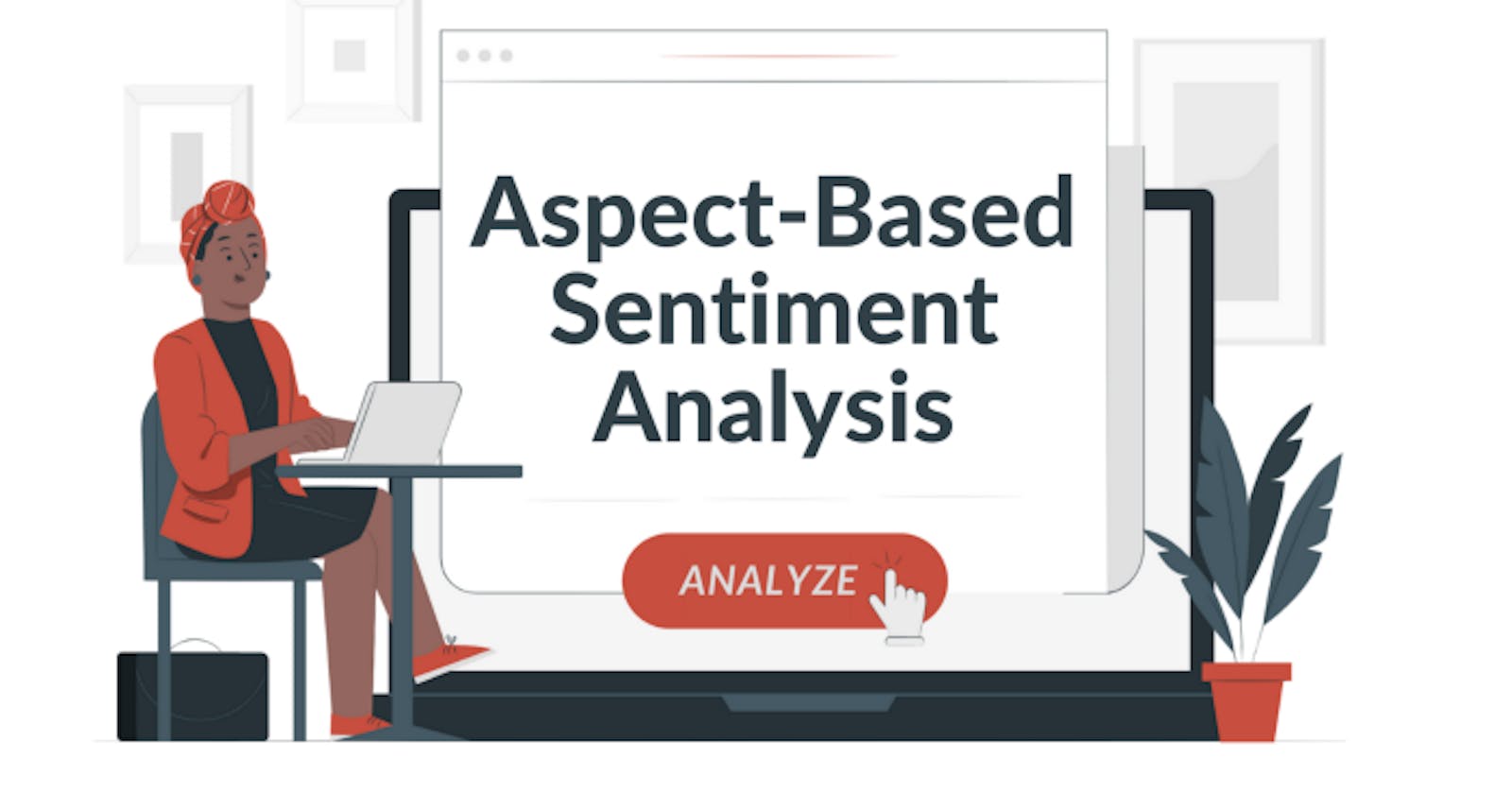Aspect-based sentiment analysis is a text analysis technique that divides data into aspects and helps determine the sentiment associated with each component.
When we talk about aspects, we’re making reference to the features or elements of a product or service, such as “the customer experience,” “the time it takes to give a response to a complaint,” or “the convenience with which new software can be consolidated.”
Aspect-based sentiment analysis is a crucial component for all businesses, as it necessitates them to listen to their consumers, understand their feelings, analyze their feedback, and focus on improving their experiences, in addition to their expectations for your products and services.
1) Sentiments are positive or negative feelings about a specific topic.
2) Aspects are the category or feature that is being discussed.
As the channels through which consumers can communicate their emotions expand, so does the value of aspect-based sentiment analysis. They are increasingly expressing themselves through it.

They now enjoy interacting with brands and contributing to social media platforms. Customers leave invaluable hints every time they interact with a company, whether it’s a mention or a concern, letting businesses know what they can do.
Advantages of aspect-based sentiment analysis
1) It enables you to analyze massive amounts of data in great detail automatically.
2) By implementing the same specifications to all text input, it helps ensure consistent and accurate results.
3) It allows you to quickly and easily gain a deeper understanding of specific products and services.
4) It can be used to create a customer-centric experience.
5) It enables you to quickly identify and address any problematic situations.
The following are some of the recommended tools for aspect-based sentiment analysis:
1. BytesView
BytesView is the finest tool for aspect-based sentiment analysis since it can analyze complicated structured and unstructured text data to help you assess user sentiments. You can simply collect text data from different sources utilizing their sentiment analysis tool and utilize it to improve your customer support services, employee and customer feedback solutions, and so forth.
If you work as a data analyst, this tool is crucial since it allows you to swiftly analyze public opinion, do market research, measure brand reputation, and evaluate user experiences.
It’s simple to train it to support and analyze more than 30 languages; all you have to do is get access to the BytesView API and integrate it.
2. Talkwalker
Talkwalker is another outstanding tool for aspect-based sentiment analysis. It claims to offer the most advanced sentiment analysis technology available, allowing it to distinguish between sarcasm and other confusing forms of unwanted remarks. Because it can tell you exactly how people feel about your company’s accounts, this tool works best with social media channels.
3. Monkeylearn
MonkeyLearn is a sentiment analysis tool based on aspects that can be customized. Simply create tags and manually highlight different sections of the text to show what content belongs to each tag. The software learns on its own over time and can now process multiple files at the same time.
4. MeaningCloud
MeaningCloud also analyses sentiment in a variety of languages. It employs a sentiment analysis approach based on the aspect to determine which topics are discussed positively, negatively, or neutrally. It also enables you to create a dictionary in order to add useful vocabulary to its system.
5. Gavgai explorer (gavagai.io)
This tool employs a topical sentiment detection algorithm to link text sentiments to the topics they describe, and when combined with their cutting-edge topic modeling and topic-based sentiment analysis, their explorer provides you with pinpointed insight into what drives satisfaction in your organization.
Gavagai Explorer supports sentiment analysis in 46 different languages.
Hope this has been a good read 😀
